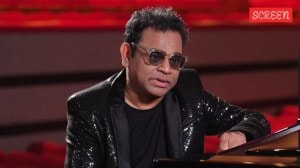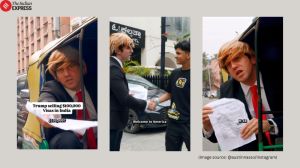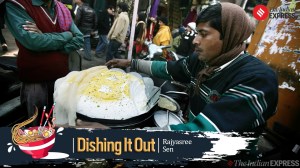BEWITCHED, BOTHERED BEYONCE
People both hate and love Beyonce. But does that have something to do with her colour?

When 8216;The Beyonce Experience8217; concert ends this month, the arena will be filled with fans who love Beyonce 8212; or at least her work. This world-renowned former member of 8216;Destiny8217;s Child8217; has a second solo CD, B8217;Day, that8217;s gone double platinum; heads the successful clothing line House of Dereon; and recently had a starring role in the Oscar-bait hit film Dreamgirls.
But scratch below the surface and it becomes apparent that BeyoncEgrave; Knowles is a star people both love and love to hate.
Part of this is a function of her public image. In interviews, the singer keeps details of her personal life to a minimum. Many still don8217;t know when BeyoncEgrave; and her boyfriend, rap superstar Jay-Z, started dating.
The singer mixes the old-school celebrity style of a Whitney Houston with the Internet-fueled fame of a Lindsay Lohan, says Emmett Price, a professor of music. While she doesn8217;t indulge in drug-taking and partying, Beyonce still draws a level of Web-generated scrutiny that can have detrimental effects on her career, says Price.
She8217;s also black. Her race, and her skin colour, provoke diverse reactions that aren8217;t always positive. For example. the gossip site TMZ.com referred to Beyonce8217;s appearance at the recent BET Awards, at which she wore a robot costume, as the singer8217;s 8220;roboho performance.8221;
On the urban site Concrete Loop, a post about Beyonce can devolve into hundreds of Beyonce lovers and haters sniping at each other electronically. 8220;They just go crazy with the comments,8221; says Angel Laws, the creator of Concrete Loop. 8220;It can go on for days.8221;
Beyonce began her quest for worldwide popularity in her hometown of Houston. Television profiles of the singer often include videos shot by her parents that show Beyonce and her friends Kelly Rowland, LaTavia Roberson, and LeToya Luckett devotedly practicing dance routines as children.
Their persistence paid off in 1998 when Destiny8217;s Child8217;s self-titled debut album produced the hit No, No, No. However, the title of the group8217;s second CD, The Writing8217;s on the Wall proved prophetic for two members: BeyoncEgrave;8217;s father replaced Roberson and Luckett with Michelle Williams and Farrah Franklin.
Roberson and Luckett accused Knowles of favoring his daughter, and entertainment gossip writers alleged that the firings were part of Knowles8217;s effort to secure a solo career for her.
Thus years later when Beyonce snagged the plum role of Deena Jones in Dreamgirls, her critics thought it perfect casting: The part echoed BeyoncEgrave;8217;s own with Destiny8217;s Child.
It8217;s hard to understand why BeyoncEgrave; elicits such passionate feelings. Comments online and in interviews offer answers ranging from overexposure to jealousy to racism.
The criticism reveals the ingrained problem of colour that has vexed the African-American community.
Even when there8217;s a puncture in the singer8217;s carefully constructed persona, no one can deny her professionalism and talent. Julia Shia, a 17-year-old dancer from Cambridge, became a BeyoncEgrave; fan after the release of the singer8217;s first solo CD Dangerously in Love. Shia admires BeyoncEgrave;8217;s. But she also understands where the criticism comes from. 8220;She portrays herself as a sex symbol rather than an artist,8221; says Shia.
VANESSA E. JONES Globe Staff NYT
- 01
- 02
- 03
- 04
- 05































